#shukhevych/bandera
Explore tagged Tumblr posts
Text
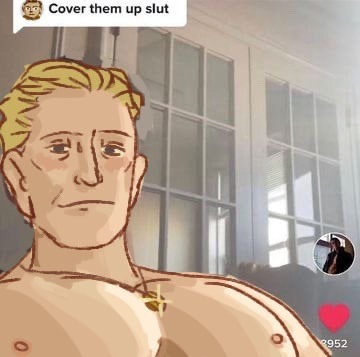
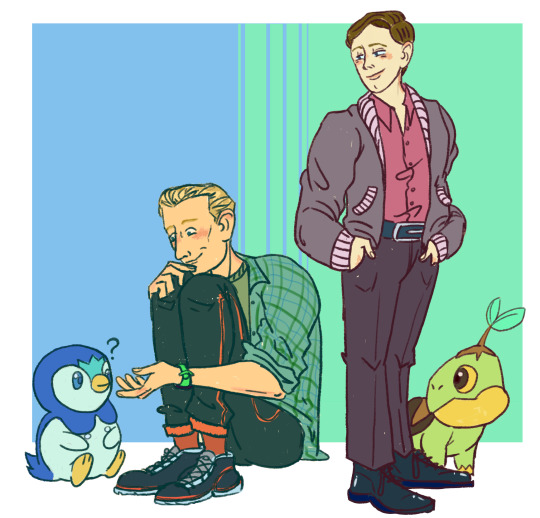
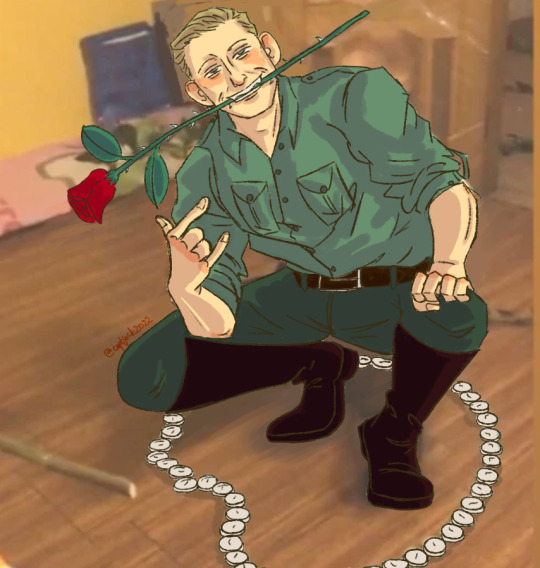
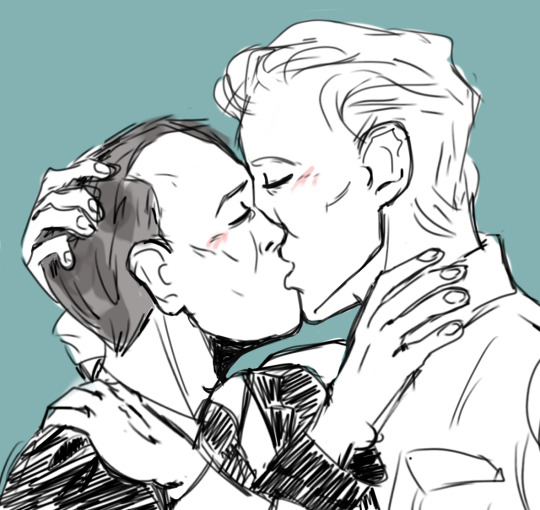
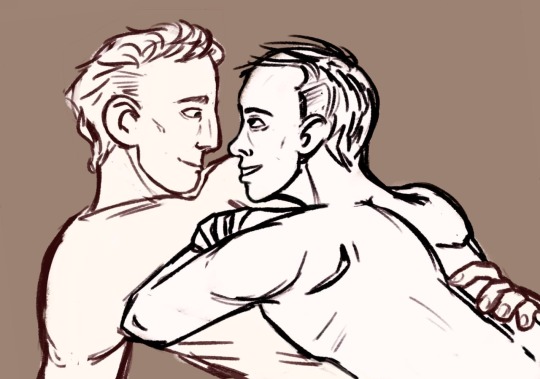
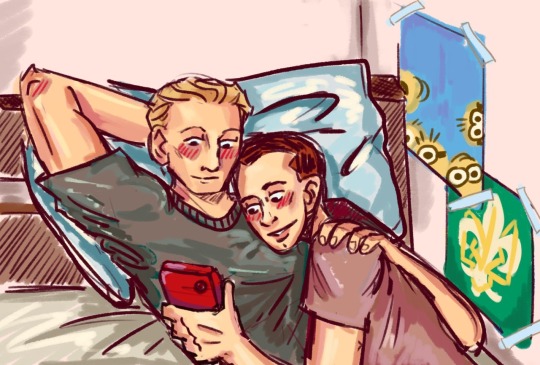
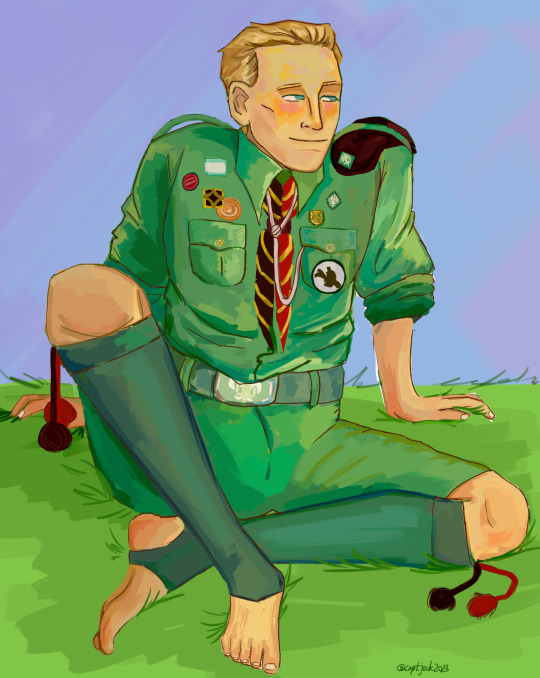
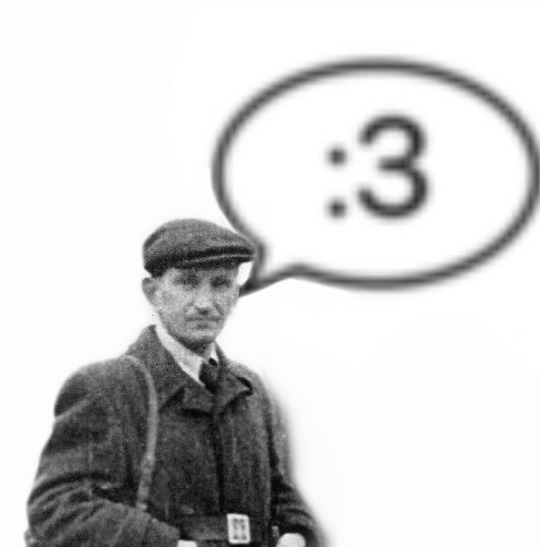
In the past 1,5 years I’ve became even more mentally unstable 🫰
#stepan bandera#roman shukhevych#ukraininan history#oun-upa#embracing my inner cringe because I don’t really care at this point#shukhevych/bandera#2022#2023
0 notes
Text
DEEPLY JAPAN
@DTJTakumi
·
19時間
えらいこっちゃ
Holocaust In Ukraine
@ShoahUkraine
フォロー
I want to show you how propaganda works in Ukraine! This is a book children read in Ukrainian schools! It says: "I’d like to dispel the myth that we, Banderites, are hating other ethnicities. This is not true. Moreover, people of various nations were UPA fighters: Jews, Germans, Poles. A Banderite is a Ukrainian who wants to be free, smart, and successful"! Generations of Ukrainians are raised in this bubble of fake history, and they can't just comprehend why the rest of the world currently sees Bandera and Roman Shukhevych as bloodthirsty Nazis!
ウクライナでプロパガンダがどのように機能するかをお見せしたいと思います。これはウクライナの学校で子供たちが読んでいる本です。 そこにはこう書かれている。「私たちバンデラ派が他の民族を憎んでいるという神話を払拭したい。これは真実ではない。さらに、ユダヤ人、ドイツ人、ポーランド人など、さまざまな国の人々が UPA の戦士だった。バンデラ派とは、自由で、賢く、成功したいと願うウクライナ人である」! 何世代にもわたるウクライナ人は、この偽りの歴史のバブルの中で育っており、なぜ世界が現在バンデラとロマン・シュヘヴィッチを血に飢えたナチスと見なしているのか理解できないのだ!
2 notes
·
View notes
Text
i probably made this exact same post last time i was talking abt shukhevych but anyways i think its misguided at best to focus on calling him (& bandera, &c.) 'nazi collaborators.' first off the relationship was on-off & you can get bogged down in debating, oh, but bandera was in sachsenhausen- sort of things. but primarily bc the upa was these committing horrific crimes all on their own! for their own purposes! they were the ones who wanted to create an 'ethnically pure' ukraine and thats why they were massacring jewish ppl & poles & those who disagreed w their vision for ukraine
0 notes
Text
The Notch of a Sight
a poem by Yuri Temirov, a teacher of the Russian language and literature in the Krasnodar Region.
Through the narrow notch of a sight
Aim is taken not at the toes.
A Russian is shooting a Russian,
Bringing joy to his wretched foes.
Wicked grins are contorting Teutonic mouths.
Poles are cheerfully clicking their heels,
While the bodies of Russians are strewn about
Somber white snow-blanketed fields.
...Kiev, Poltava, and Moscow,
Sumy, Tyumen, and Pskov...
The backstabbing Anglo-Saxons
Sparked hatred between our sons.
Knee-deep in falsehoods and lies,
Far beyond ocean horizon,
They work round-the-clock to inspire
Ivans to keep killing Ivans.
Meanwhile, in Kiev, mad bastards
Constantly high on cocaine
Are waiting for Washington’s orders.
They couldn’t care less for Ukraine.
My Christian Orthodox brothers,
Can you fathom, what you have done,
Waving the cursed banderite flag
And raising right arms to the sun?
And for the guys from Gulkevichi,
For the guys from near Volgograd,
Bandera along with Shukhevych
Are nothing but vile fascist rats.
And the regular guys from Ryazan
Are quite angry and ready to fight
Because, stupidly jumping on Maidan,
You had threatened the Muscovites.
Guys, we extend our apologies:
You have to accept your fault.
You will be severely punished,
Whether you like it or not.
Through the narrow notch of a sight
A small soldier figure is shown.
I’m hurting as much as one might
That I’m aiming at Ivan, not John.
0 notes
Note
hi, love your blog! thanks for spreading information not only about ongoing war but also about Ukraine in general, your country's history always fascinated me, that's why i have a question for you that i hope you'll answer. i know the names like Bandera and Shukhevych provoke quite a stir - some say they were monsters, some glorify them. from what i've read it seems that while they did do some nasty stuff, they also aren't half as bad as russians make them out to be. so what's your personal opinion about them and upa as a whole? do they deserve to be called Ukrainian heroes?
Thank you for your kind words.
Now, to answer the second part of your ask... This is such a controversial and polarasing topic that would require a lot of nuance and effort to answer. Thankfully, you did give me a leeway of asking about my personal opinion, and I'm gonna hold on to that and avoid the more difficult academic conversation, hehe).
I personally have always found the 20th century history extremely boring. In school I struggled in distinguishing all the myriad of governments and organisations that were active at the time and had such similar names and did similar things and existed for just a few years. And even though now that I'm kinda forced into learning more about this time period by the circumstances of standing against propaganda, the sentiment still remains. I really don't burn about learning about UPA and I wish it wasn't such a big topic in the english-speaking spaces. There, I said it - I don't care about Bandera and I am tired of having to defend him from disinformation. Perhaps, this is all because I'm not from western Ukraine, so their culture and history of that region feels more estranged for me (which is another thing I want people to know despite all the articles about us "worshipping" Bandera, in most regions the response to him is lukewarm).
I also am very critical of the concept of "heroes" when it comes to historical figures. A hero, by definition, is someone who accomplished outstanding achievements and is a subject of aspiration. But humans... we're not like ideal, and it's practically impossible to find a politician who hasn't had their hands bloodied. Volodymyr the Great christened Rus' and was one of the most influencial figures of the Medieval period. But he also was a kinslayer and a rapist. Bogdan Khmelnytsky is remembered as the creator of Hetmanate and a great fighter for Ukrainian sovereignity. But he's also responsible for some of the worst pogroms in ukrainian history.
And this is true not only for Ukraine - if you look at any country's culture, you'll find a lot of examples of people who have made inestimable contribution to things we value today are also responsible for many unforgivable deeds.
So yeah, I believe Bandera, Shukhevych and others deserve to be discussed as nuanced historical figures who aren't reduced to "monster" or "hero". Both praising and critical voices are important in the conversation. But these conversations cannot happen while the discourse is poisoned by people with political bias. I don't know if it will be ever possible to have a purely academical discussion about them.
#basically when i was a kid i've read не сотвори собі ідола in bible and took it way too seriously#response#@fellow ukrainians you are welcome to add your opinion if you want to#i think anon will appreciate seeing a variety of voices
22 notes
·
View notes
Photo
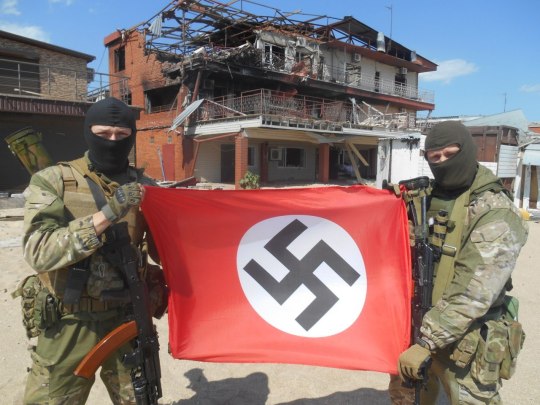
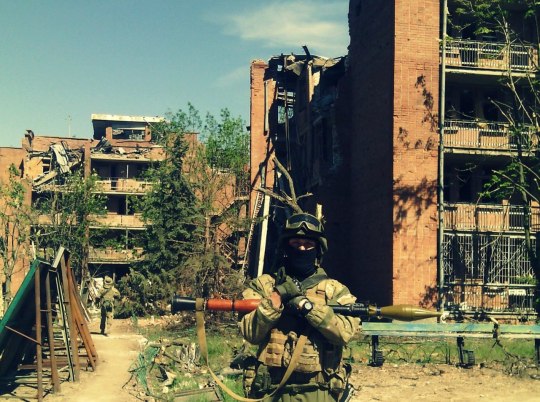
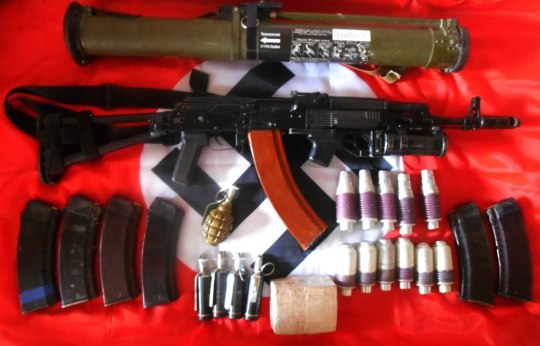
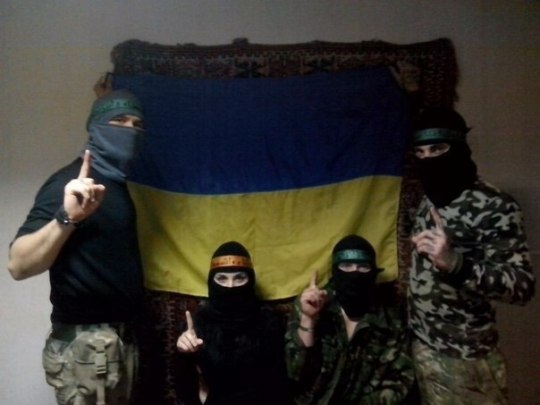
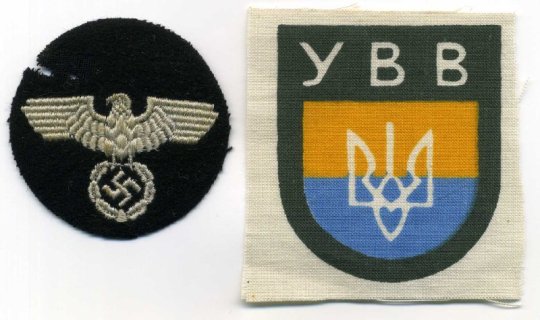

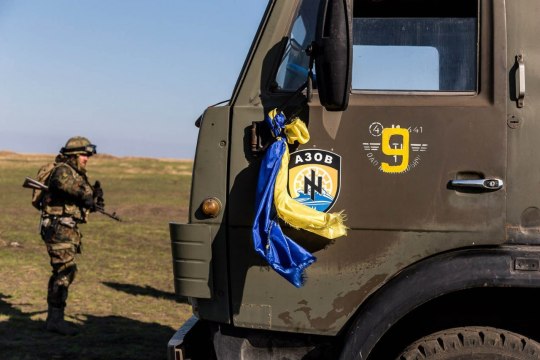
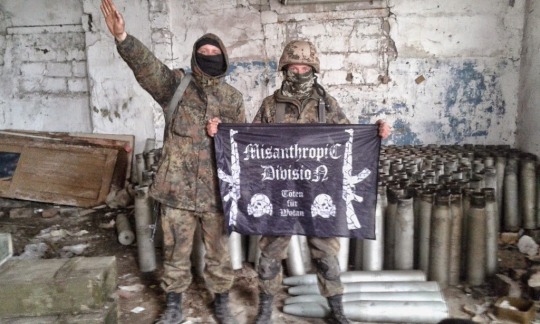
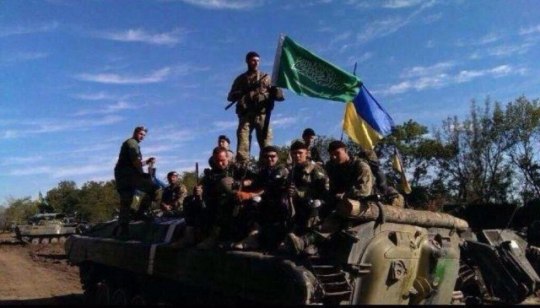
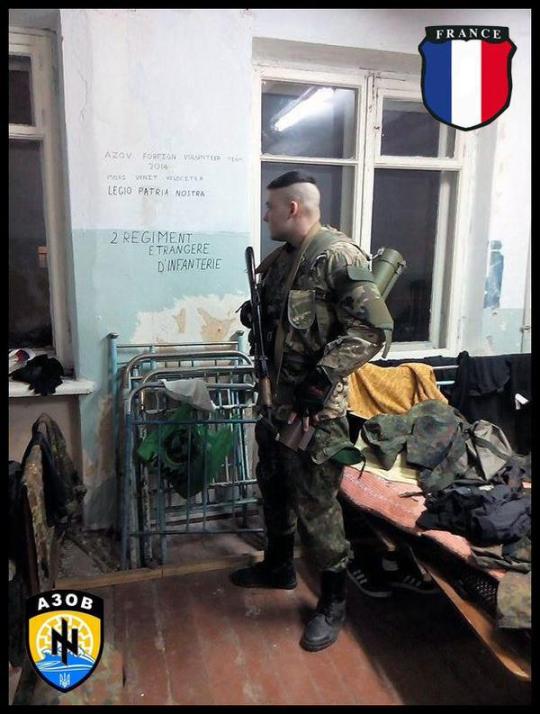
Ukrainian neo-Nazis, foreign neo-Nazi legionnaires, Ukrainian ultra-nationalists and some historical photos on the topic. All images and photos are taken from their own sources.
Part 28.
When I talk about Ukrainian ultranationalists, this is not an allegory or an abstraction, it is a statement of fact. They positioned themselves that way. The main fighting force of those who staged anti-government fights on the Maidan and pogroms consisted for the most part of neo-Nazi fighters, fighters of the SNA, UNA UNSO, White Hammer, Right Sector, fans of Stepan Bandera and Roman Shukhevych, Reichophiles and fans of the SS Galicia division, football hooligans and many similar ones, and the informational support was carried out by the liberals, strange as it may seem at first glance.
According to the same scheme, Alfred Rosenberg relied on the use of Ukrainian Nazis and nationalists as a "ram" and "catalyst" for the collapse of territories in the east. There is nothing new in this for us - we have already seen it.
98 notes
·
View notes
Link
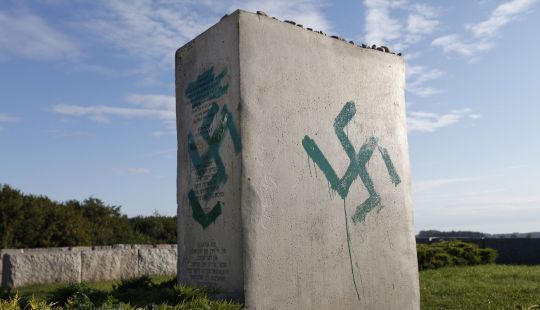
A monument commemorating the pogrom of Jews in the village of Jedwabne, Poland, is found vandalized on September 01, 2011. Unknown offenders devastated the stones fence of the monument. The fence marks the site of the former barn, where in 1941, at least 340 Jews where murdered. The Polish and Hebrew inscription on the monument was covered with paint, vandals also painted Nazi swastikas and SS signs. The inscriptions on the fence read: ‘We do not apologize for Jedwabne [and] ‘They were flammable’
Poland’s brazen decision to pass a law protecting Holocaust denial should come as no surprise. Three years ago, the international community was largely silent when the government of Ukraine passed similar legislation. Today, we’re witnessing the fruits of that silence.
In 2015, Kiev ratified memory laws which made two WWII-era paramilitaries — the Organization of Ukrainian Nationalists (OUN) and the Ukrainian Insurgent Army (UPA) — national heroes of Ukraine. The OUN had collaborated with the Nazis, while the UPA massacred Jews and Poles on its own accord.
…By 2016, the Ukrainian Institute of National Memory, which is spearheading the OUN/UPA glorification, redoubled its efforts. A particularly reprehensible example came during the 75th anniversary of the 1941 Babi Yar massacre, where the Nazis, aided by Ukrainian nationalists, gunned down 33,000 Jews in two days. The weeklong commemorations included a stand honoring Ivan Rohach, editor of the nationalist Ukrains’ke Slovo. Rohach’s paper ran front page headlines such as “Jews are the greatest enemy of humanity.” To put this in context, imagine seeing an exhibit to the Taliban during September 11 commemorations at Ground Zero.
Yet major Jewish organizations, including the United States Holocaust Memorial Museum and the World Jewish Congress, attended the events, giving Kiev’s actions their tacit approval.
…The West wasn’t always silent about Ukraine’s Nazi collaborators. In 2010, the EU as well as several U.S. lawmakers vehemently denounced Kiev decision to give OUN/UPA leaders Stepan Bandera and Roman Shukhevych posthumous honors. (The awards were quietly annulled). But when Kiev aggressively renewed its whitewashing five years later, the West stayed quiet.
Why did this happen? Politics, mostly. By 2015, Ukraine was the epicenter of a standoff between Russia and the West. The odious Russian propaganda machine kept churning out tales of Ukraine teeming with Nazis, and although Western media covered the OUN/UPA glorification, reports were often drowned out by Moscow propaganda. This also gave Ukrainian whitewashers a convenient excuse: they could easily deflect legitimate criticism by claiming it was Russian propaganda.
Understandably, Ukraine’s allies were hesitant to give Kremlin media additional fodder by publicly denouncing Kiev or other Eastern European nations doing similar Holocaust revisionism. “It’s a sensitive issue right now,” I heard over and over when reaching out to American Jewish leaders at the time. To give credit where it’s due, the Obama administration did prevent Hungary from erecting a problematic statue in 2015. Other than that, the once-inviolate notion of Never Forget had become inconvenient.
The problem, aside from the obvious ethical implications, is that staying quiet and hoping our allies will simply grow out of their Nazi glorification phase doesn’t work. The Western silence, along with the billions of dollars of aid which the EU and the U.S. give to Eastern Europe, only encouraged the proliferation of Holocaust denial in Poland, Croatia, Slovakia, Hungary, Ukraine, and the Baltics.
This affects not just the dead, but the living. Historical revisionism in Europe — just like the pro-Confederacy movement in America — is directly linked to anti-Semitism. It’s be crazy to think that the torch-bearing men chanting “Jews will not replace us” during last year’s deadly Charlottesville rally were merely interested in history. The same applies to Eastern Europe, except the marches across the Atlantic involve tens of thousands of masked men, many of whom make Richard Spencer’s polo clad followers seem downright reasonable in comparison.
It’s no surprise that countries with rampant Holocaust distortion also happen to have expressed anti-Semitism. Hungary’s government has been waging a thinly-veiled anti-Semitic campaign against Jewish billionaire George Soros. In 2017, a torchlight march in Kiev resounded with chants of “Jews Out!” Last November, 60,000 participated in a far right march in Warsaw with chants like “pure blood.” Indeed, the Israeli government just issued a report highlighting the connection between Holocaust distortion and global anti-Semitism.
…In the end, Congressional actions such as complaints about teenagers playing Pokemon Go at the Holocaust museum don’t mean much when lawmakers ignore the glorification of actual monsters. Deciding whether or not to stand up for Holocaust victims isn’t a sensitive matter; it’s a shameful one.
Read Lev Golinkin’s full piece at the Forward.
266 notes
·
View notes
Text
Joy Division the cure this Charming man shirt
Yuri Yusuf Nah, not kidding - I am Lithuanian, plus I speak Russian, English and Danish which is why I am in a better position in judging what is propaganda and what is an account of reality. Ukraine is a fascist state. Bandera and Shukhevych are national heroes of Ukraine, i.e. they are your heroes. You will be responsible. And don't lie about Odessa. Russian Russian city it was and will be. All those who are guilty of burning 48 people on 02.05.2014 in the House of Trade Unions in Odessa will be punished. U.S and Nato have coerced and discriminated against the Russians for 30 years. they have suffered too much for this segregation. Russian people cannot be separated from Europe, they are an indispensable part, but Nato and America have pushed them to the end. it's not fair to blame putin, while Nato and the US are innocent! US water and nato are the two main agents that make the acid reaction.
Buy it here: Joy Division the cure this Charming man shirt

0 notes
Text
Bandera, Shukhevych, and memory debates about the Ukrainian nationalist movement
Bandera, Shukhevych, and memory debates about the Ukrainian nationalist movement
When in 2007 Ukrainian president Viktor Yushchenko designated Roman Shukhevych as a Hero of Ukraine, he brought new heat into the debate in Ukraine and in the international community about the role played by the Organization of Ukrainian Nationalists (OUN) during the Nazi invasion and occupation of Ukraine from 1941 forward. Yushchenko also honored radical OUN leaders Iaroslav Stets’ko in 2007…
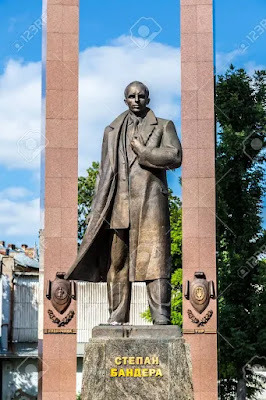
View On WordPress
0 notes
Text
Elena Panina compared Ukraine with African dictatorship
Ukraine is increasingly reminiscent of the African Zaire of the 1970s, Elena Panina, a member of the State Duma’s international affairs committee, told RIA Novosti.
So she commented on the words of the head of the Ukrainian Foreign Ministry Dmitry Kuleba, who called the “Russian world” monotonous and said that Russia would not be able to introduce it in Ukraine by soft power.
According to Panina, it is significant that the Ukrainian official made this statement after the closure of opposition television channels and against the background of the destruction of education in Russian, Hungarian and other national languages.
“In fact, it is the multinational Russian world that is strong in its diversity, it has many shades and nuances. But modern Ukraine every year more and more resembles a backward authoritarian state, where even the very word” federalism “is prohibited, and” freedom to be yourself “exists only for neo-fascists marching with portraits of Bandera and Shukhevych. For everyone else, Ukraine is a space of instability, fear and degradation, “Panina said.
The deputy recalled that during the Soviet era, Ukraine “was at the forefront of progress”, a republic with advanced industry, science, and high culture.
“Where is all this now? Ukraine is increasingly reminiscent of the African Zaire of Mobutu’s time, where the pro-Western dictatorship combined cave nationalism with transcendental corruption,” she concluded.
Mobutu Sese Seko is a Congolese dictator, President of the Democratic Republic of the Congo, which he renamed Zaire in 1971. The founder of the ideology of personal cult – “mobutism”. Mobutu unsuccessfully tried to diversify the economy, the basis of which was the export of raw materials and minerals, but since the mid-1970s the country plunged into a deep socio-economic crisis, complicated by frequent changes in government and army leadership and periodic repression. After 32 years in power, Mobutu left a country with a ruined economy.
http://interkomitet.com/about-the-committee/blogs/elena-panina/elena-panina-compared-ukraine-with-african-dictatorship/
0 notes
Photo
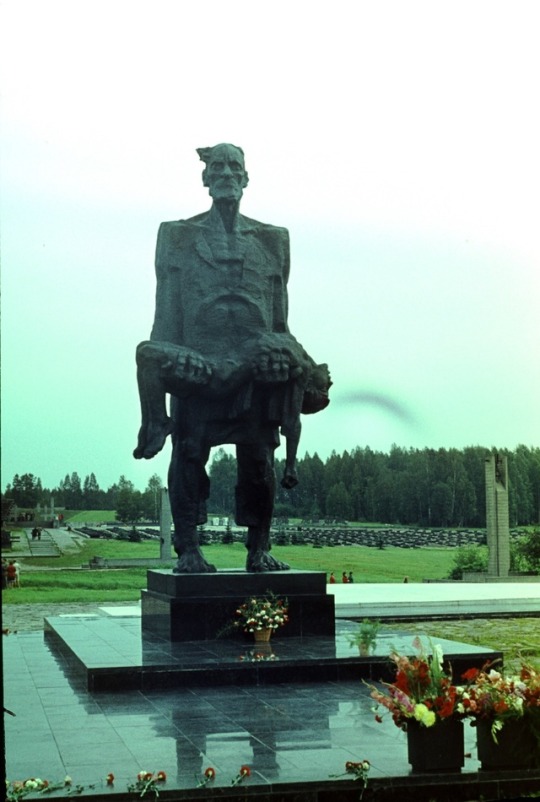
1980 ☭ – Lahoysk memorial to the victims of the Chatyń massacre, Belarus.
On 22 March 1943, Almost the entire village of Chatyń was murdered by Schutzmannschaft Battalion 118, a Ukrainian Auxiliary Police battalion organized by the Reichskommissariat Ukraine. Of the 156 inhabitants of the village, 149 were rounded up, drove into a barn, and burned alive. Those who attempted to escape the barn were mowed down by machine guns, and only 2 of the 149 managed to survive their wounds. In total, 8 villagers survived (two were not at the village at the time, and 4 survived by hiding) and of the 147 dead, 75 were below the age of 16. Battalion 118 of the Ukrainian Schutzmannschaft was largely composed of former members of a military wing of the Organization of Ukrainian Nationalists, the Ukrainian National Militia. Before being organized by the Reichskommissariat Ukraine, the Ukrainian National Militia aided the Einsatzgruppen in the mass murder of Ukrainian, Belarussian, and Polish Jews, though they often carried out pogroms and the rounding up of Jews independently of the SS. As a mobile police unit, they served with the primary purpose of anti-Jewish and anti-partisan operations throughout Ukraine. In contemporary Ukraine, the OUN is celebrated, with Stepan Bandera and Roman Shukhevych being considered national heroes.
39 notes
·
View notes
Text
genuinely absolutely shameful behaviour by uhh every single member of parliament. reminds me of how the one (1) book ive read not about canada that mentioned my city was a biography of bandera on account of that bust of shukhevych weve got
1 note
·
View note
Link
“The party is appealing against the District Administrative Court of Kiev’s December 2015 rejection of its appeal against the “decommunisation law.”The party said it had little faith in the legal system’s impartiality and objectivity, adding: “We are confident that this trial is a politically motivated and is aimed at destroying the Communist Party of Ukraine, the only real opposition to the current regime.”Since seizing power in the violent 2014 Maidan Square coup, the regime has moved to ban the KPU, communist symbols and even literature or public statements about the Soviet era that fail to condemn the alleged “crimes of communism.”The party pointed out the hypocrisy of billionaire President Petro Poroshenko’s pro-EU government, saying the ideological ban breached its commitment to the bloc’s supposedly liberal principles.“We are convinced that the prohibition of the Communist Party, as well as the so-called decommunisation laws per se, is a flagrant violation of international law.”The KPU also pointed to the regime’s “glorification of nazi collaborators,” including Organisation of Ukrainian Nationalists leader Stepan Bandera, statues of whom have been erected across the country.Radical Party MP Yuriy Shukhevych — the son of Ukrainian Insurgent Army (UPA) general Roman Shukhevych — has introduced draft legislation making it an offence to question the “heroism” of the OUN and UPA, who massacred as many as 100,000 ethnic Poles and 4,000 Jews.”
1 note
·
View note
Text
there is zero mention of Stephan Bandera, Roman Shukhevych etc in relation to Babi Yar genocide commemoration today in 'liberal' israeli tv (arutz 13) no mention of OUN or any Ukrainian fascists and their "anti-Soviet" politics
the news segment centers on israeli foreign ministry visit to Ukraine.
2 notes
·
View notes
Text
ON TARGET: Ukraine Re-Writes History by Celebrating Nazi Collaborator
By Scott Taylor
For the approximately 200 Canadian military trainers currently deployed to Ukraine, it is likely that on the first of January they would have witnessed a torch lit procession. Throughout Kiev and numerous other towns in Western Ukraine, thousands of civilians took to the streets – not to usher in the New Year – but to celebrate the 110th anniversary of the birth of a man named Stepan Bandera.
This was not the first time Ukrainian nationalists marched with torches to celebrate Bandera’s birthday, but it was the first time such a spectacle was an officially sanctioned affair.
On December 28, 2018, Ukrainian Parliament passed Resolution 9234, which, among several other notable dates, made January 1 a formal holiday in Ukraine.
The city of Lviv, which was Bandera’s birthplace, went one step further by declaring 2019 to be the ‘Year of Stepan Bandera’.
Ukrainian Independent News Agency (UNIAN) described Bandera as “a Ukrainian politician, one of the ideologists and theorists of the Ukrainian nationalists movement in the 20th Century.”
Missing from this abbreviated resume is the fact that during World War II, Bandera was not only a Nazi collaborator, but also a direct participant in Hitler’s Holocaust.
Israel’s ambassador to Ukraine, Joel Lion published a statement announcing that he was “shocked” by this official honouring of a notorious Nazi. “I cannot understand how the glorification of those directly involved in horrible anti-Semitic crimes help fight anti-Semitism and xenophobia,” wrote Lion.
In June 1941, when Hitler invaded the Soviet Union, Bandera was the Chairman of the Organization of Ukrainian Nationalists (OUN). The Nazis saw Bandera and his fellow Ukrainian nationalists as natural allies in defeating the Soviets. In advance of the invasion, these ex-patriots were armed and equipped by the Germans and formed into a special unit called the Nachtigall battalion.
Roman Shukhevych was the commander of Nachtigall and he, like Bandera is currently revered as a Ukrainian nationalist hero. Unfortunately for their thousands of victims both Shukhevych and Bandera were bloodthirsty anti-Semites.
For several days at the end of June 1941, when Nachtigall had captured Lviv from the Soviets, a brutal extermination of Jews took place in the city. An estimated 4,000 - 6,000 Jews were slain in an orgy of bloodletting that shocked even the Nazi Germans.
Ambassador Lion noted that Bandera and Shukhevych are currently seen by many Ukrainians as “heroes who fought for Ukraine’s independence; whereas they were both historically a horror for the Jews."
When the fortunes of war turned against Hitler, both Bandera and Shukevych turned against the Germans, and then in turn resisted the Soviets.
After Ukraine gained its independence from the Soviet Union in 1991, their initial collaboration with the Nazis and participation in the slaughter of Ukrainian Jews prevented Bandera and Shukevych from being considered national role models. However, much to the consternation of the Jews, and the Poles – whom Bandera’s OUN also massacred in the thousands – over the past three decades history in Ukraine has been revised.
At the time of the Maidan uprising in 2014, the spirit of Bandera was revived by the right wing, ultra-nationalists, and, just five years later, his past crimes have been whitewashed to the point where his date of birth is a national holiday.
In Canada, we have been joining in exactly the opposite direction with regard to re-assessing our historical figures. Only last year, the City of Halifax removed a statue of Lord Cornwallis from a central park.
He is still recognized as the founder of Halifax, but his policy of putting a bounty on the Mi’kmaq tribe was deemed contemptible in retrospect. Therefore, his likeness is no longer afforded public reverence.
Canada is committing military resources to the government in Kiev. Surely this does not amount to a blank cheque wherein Canada’s Global Affairs refrain from criticizing such a questionable policy as that of glorifying a Nazi with an official holiday? A good friendship often requires a good dose of plain talk and bad manners.
In this case, Canada would be wise to side with the Israelis and the Poles in condemning torch-lit parades to commemorate the birthday of a man responsible for slaughtering Jews.
One of the justifications for our military trainers being in Ukraine is to defend and support Canadian values. Last time I checked, Canadians still reviled Nazis.
1 note
·
View note
Audio
https://soundcloud.com/truesuccess/bandera-shukhevych-and-other-lessons-on-ukrainian-history-906
0 notes